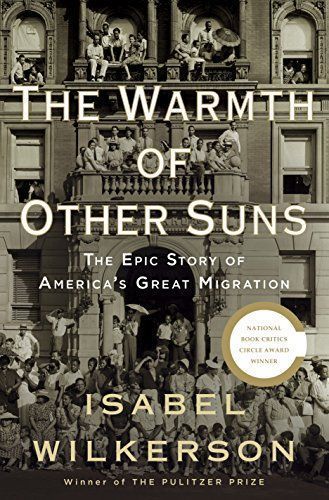
The Warmth of Other Suns The Epic Story of America's Great Migration
An epic history covering the period from the end of World War I through the 1970s chronicles the decades-long migration of African Americans from the South to the North and West through the stories of three individuals and their families.
Reviews
Cece Page@cecebookpage
Ron Bronson@ron
Scordatura@scordatura
Stephanie Ridiculous@stephanieridiculous
Dana Kraft@dkatx
Cindy Lieberman@chicindy
Melody Izard@mizard
Rose Stanley@roseofoulesfame
Salam Kabbani@theunabridgedlifeofsalamacita
Kyra Ann Dawkins@kyra_ann_writes
Jeni Enjaian@jenienjaian
Sheryl Levitt@sheryl
Michael Hessling@cherrypj
Matt Messner@messner
Jason Pinto@jasonpinto
Gelaine Trinidad@gelaine
Helen Bright@lemonista
Pamela Koh@the1pam
Sam@givemenothing
Abhimat Gautam@abhimat
Tanlyn Roelofs@tanroe
Monique Baham@moniqueb
Maddie@maddie
Sarai Johnson@ess826